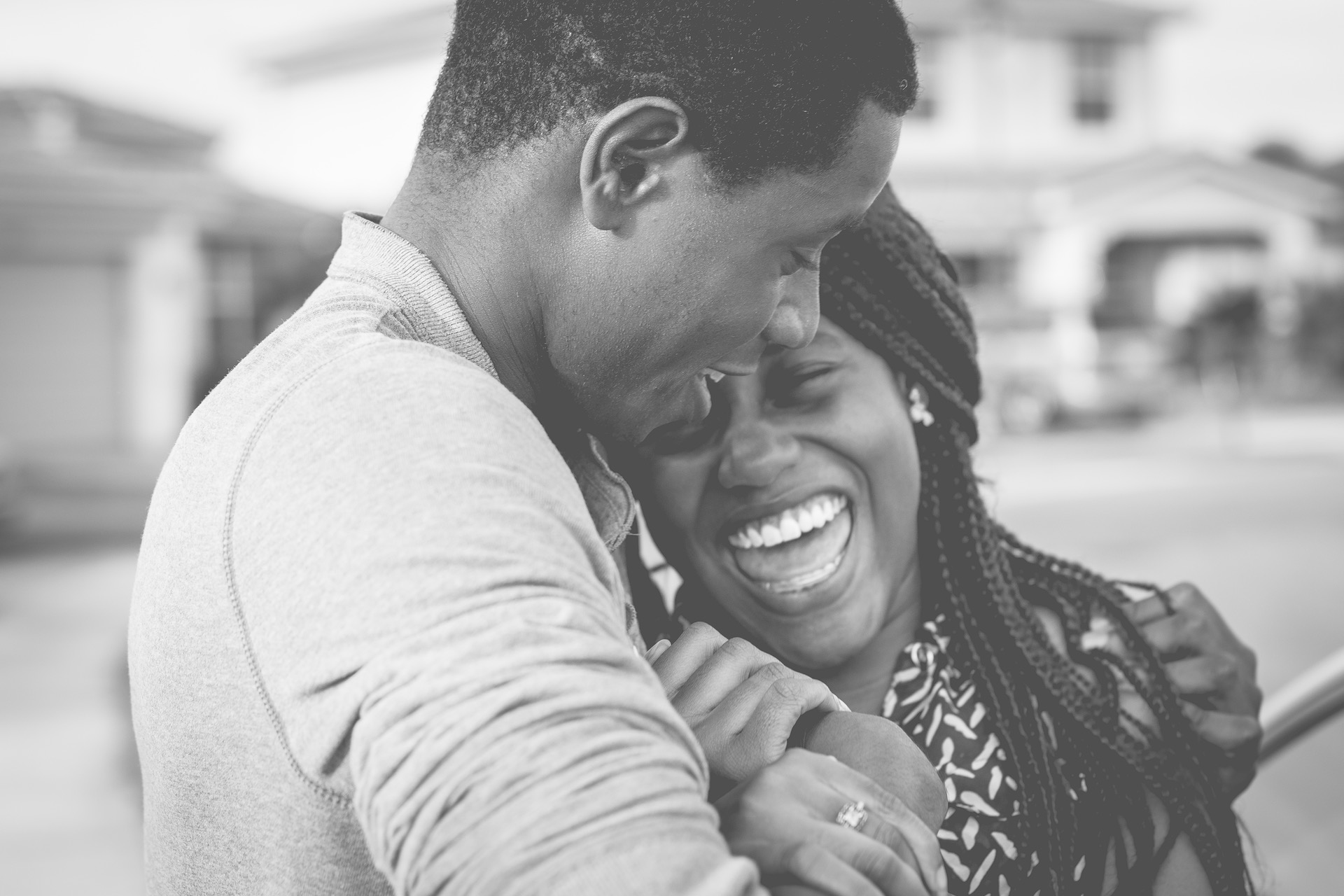
The Ex Dilemma: To Stay Friends or Cut Ties?

When a relationship comes to an end, whether it was mutual or unexpected, it can hurt like nothing else. Trust me, I know. Even if you saw it coming or were the one asking for the breakup, your feelings are still valid. It’s essential to acknowledge the mix of emotions—whether sadness, relief, confusion, or frustration—whether it ended from a healthy place or from toxicity. Breakups can feel like carrying a heavy emptiness where warmth and love once existed.
After the breakup, a question that often pops up is: Should I stay friends with my ex? It’s a million-dollar question that can stir up a lot of back-and-forth, especially for those of us with weaker boundaries or emotions that are all over the place.
Let me tell you, I’ve been there a couple of times. I’ve done the six months of no contact, deleted their number, muted their social media statuses, and even unfollowed them. Like you, I’ve googled how to stay away or get over an ex. There are so many opinions out there, but the truth is, the choice is yours.
Having an ex as a friend isn’t necessarily a problem, but it’s important to understand that this situation is like a coin with two sides. If we view a relationship as a journey in life, where each person played a role for a time, then maintaining a platonic friendship could be a meaningful gesture of appreciation. After all, our exes taught us valuable lessons, whether we realized it at the time or not.
Here are a few lessons my exes taught me:
How to walk away from cheating and flirtatious partners.
How to stand by my decisions, even when others think we’re the perfect match.
How to recognize opportunists and manipulators—because love is action, and actions speak louder than words.
What real love feels like: being loved and cherished in a way that is pure and relaxing, often with zero drama.
How to leave behind inconsistency, poor communication, empty apologies, and broken promises.
Some of these were actual relationships, others were situationships or potential relationships that never materialized. Regardless, each taught me something important.
Before deciding whether to stay friends with an ex, it’s important to identify your strengths and weaknesses. If you don’t have the emotional capacity to maintain a platonic friendship with mutual respect, that ex should be as far away from you as Pluto. Personally, I’ve found that keeping in touch with exes I genuinely loved doesn’t work for me immediately after a breakup. I get stuck reminiscing, scrolling through old photos, and re-reading messages. I end up snapping at the wrong people and going through unnecessary emotional cycles.
With time, I’ve learned to become more emotionally stable. I’m not perfect, but I’m learning to be better for my future self—and you can too.
When deciding to keep an ex as a friend, you need to ask yourself why. What are the benefits? If you’re able to identify those benefits, then you can make an informed choice. Grab a pen and paper or your phone, list out the pros and cons, and weigh your options. If keeping an ex around will negatively affect your current phase in life, cut them off.
For example, I still maintain a friendship with my ex who is a medical doctor. It wasn’t a toxic relationship, and staying friends has its mutual benefits—like getting free consultations or occasionally helping him with assignments. I had nothing to lose by staying friends, and we’ve set up respectful boundaries.
Let me be quick to add, having an ex as a friend doesn’t mean you two should become besties or relationship coaches for each other’s future partners. Maintaining a friendship doesn’t mean calling them for a free ride every time, asking them to fix things around the house, or continuing to cook for them. Far from that! Try to limit contact when possible. Think of it this way: just like you have friends or contacts on your phone whom you don’t talk to every day, the same principle should apply here. Your ex should be more of a last resort, not your first point of call for everything.
However, if you’re keeping an ex around for selfish reasons or because you’re hoping for something more, then you’re setting yourself up for trouble. If an ex becomes your source of comfort during rough patches in your new relationship, you risk blurring the lines between friendship and something more. Familiarity with each other’s happiness triggers can easily shift a platonic friendship into an emotional or physical affair.
Remember, there was a reason for your breakup. Upholding that reason, even above your emotions, is crucial. Blocking your ex may feel like a good solution, but it’s subjective. The key is to be mature enough to put the past behind you and focus on your present and future.
It’s like tossing dirty, sweaty clothes into the laundry basket. You don’t wear them again until they’re clean. Likewise, you don’t let an ex back into your heart unless the reason for the breakup is no longer an issue, and they’ve made visible changes. Otherwise, they remain a thing of the past, no matter how attractive or charming they may appear now.
Also, be fair and ask yourself: if your current partner were constantly talking to their ex, meeting up regularly, or playing therapist for them, wouldn’t you feel uneasy or jealous? It’s natural to feel that way, and it can negatively impact your current relationship. Before entering a new relationship, it’s also a good idea to discuss this topic with your partner. Find out where they stand on being friends with exes, and whether it’s something you can both agree on—or if it’s a deal-breaker for them.
At the end of the day, the decision to stay friends with your ex is yours alone, ultimately comes down to what works best for you Consider your emotional stability, your intentions, and whether you’re strong enough to maintain clear boundaries. . Be honest with yourself—are you emotionally stable enough to keep things strictly platonic? Assess your motivations honestly. Do you genuinely want the friendship, or are you holding on to the past? Staying friends with an ex can be rewarding, but only if it aligns with your personal growth and life direction. If the friendship feels like it will benefit you without jeopardizing your future or emotional health, go ahead. But if it’s going to drag you back into old patterns, it’s best to let go. If you feel uncertain, trust your instincts, and don’t be afraid to walk away for your own well-being.
If you choose to stay friends with your ex, setting clear boundaries is essential to avoid falling into old patterns or reigniting past feelings.
Here are some key boundaries to consider:
Limit emotional intimacy – Avoid discussing deeply personal issues, especially about your current romantic life. Sharing your heart with an ex can easily lead to a reconnection of old feelings.
Create physical boundaries – Set clear limits on physical interactions. No lingering hugs, cuddles, or anything that could be interpreted as romantic.
Define communication limits – Avoid late-night texting or frequent calls. Keep conversations casual and focused on neutral topics. Also, define how often you will check in with each other.
No comparison with current relationships – Do not compare your ex to your new partner or discuss issues in your current relationship. It opens the door for opinions that can blur the lines.
Respect each other’s space – If your ex starts dating someone else, respect that relationship and avoid inappropriate comments or actions. And expect the same in return.
Recognizing a Blurred Friendship
A blurred friendship with an ex happens when emotional and physical boundaries begin to erode, turning a simple connection into something more complicated. Here are signs to watch out for:
Emotional Dependence – If you find yourself constantly going to your ex for advice, emotional support, or comfort, it’s a red flag. This often leads to emotional attachment, which can easily snowball into deeper feelings.
Inappropriate Flirting – If light-hearted jokes or comments turn into flirting, the line between friendship and romance is already starting to blur.
Physical Contact – Any form of physical affection—holding hands, hugging too long, or casual touching—can reignite feelings, especially if it’s something you did while in a relationship.
Secret Communication – If you’re hiding your friendship with your ex from your current partner, or vice versa, it’s a clear sign that things are no longer platonic.
Constant Thoughts of “What If” – If you keep wondering “What if we got back together?” or reminiscing about your past relationship too often, that’s an indication that the friendship may be more than just a friendship in your mind.
At the end of the day, you owe it to yourself to be honest about your emotional capacity. Some exes can stay friends without any problems, while others can bring confusion, emotional turmoil, or even the possibility of rekindling a relationship that wasn’t meant to last. The key is to set strong boundaries and always check in with yourself: Does this friendship serve me, or am I holding onto something I need to let go?
With Love,
Rammie.
I have been so afraid of loosing those l love until l realised that no one is afraid of loosing me. When you get to know your partner has wrong intentions, please walk away with no remorse. If you happen get on the wrong train in life (meaning in the wrong relationship), be sure to get off at the first stop. The longer you stay, the more expensive the return trip will cost you.
Related Posts
Naa Adjeley Addo
Wow, just wow, this is a must-read for everyone in a relationship or hoping to start one. More grace Ewura.
Gina
This story is a reminder that growth comes from overcoming challenges. Thanks for sharing.




















2 comments